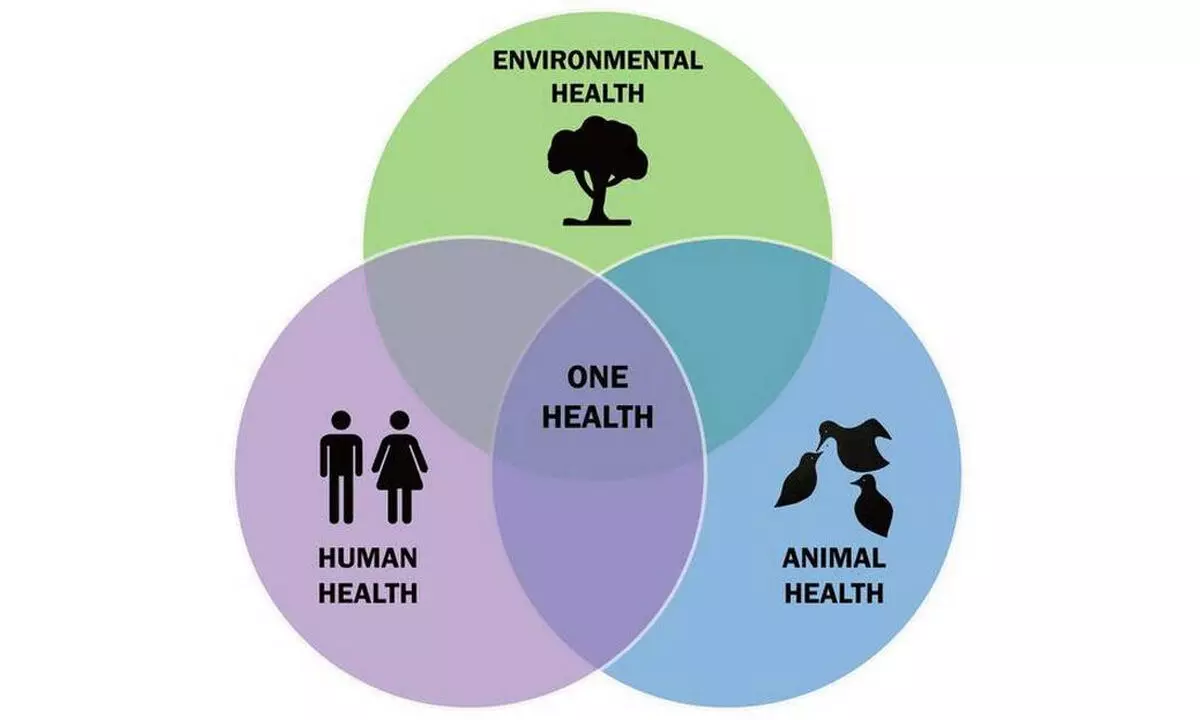Consortium to submit report for One Health approach soon

Consortium to submit report for One Health approach soon
Experts from various national agencies participated in the global workshop in Vijayawada on November 25 and 26 and prepared Vijayawada declaration
Vijayawada(NTR District): The consortium that organised workshop on AMR in Vijayawada on November 25 and 26 will submit detailed inputs of the discussions from all the stakeholders participated in the workshop to the AP government for effective implementation of 'One Health' approach. The consortium conducted workshop with objective of containment of Antimicrobial Resistance (AMR).
The AMR means the resistance developed by microorganisms like bacteria, fungi, viruses, protozoa etc against antimicrobials such as antibiotics. Many pathogenic (harmful) microorganisms are responsible for different diseases in humans and animals.
The Union government has launched One Health scheme which is an integrated, unifying approach that aims to sustainably balance and optimize the health of people, animals and ecosystems. Human beings and animals are interdependent and there should be coordination on health and wellness. Prime Ministers of India and the Netherlands signed an agreement in 2018 to contain the AMR. The Union government and States have to work for containment of AMR.
Dr Anand Kumar, Professor of Veterinary Microbiology, said that the raising of AMR in bacteria assumes great significance as it threatens human health, animal health and environment. An effective action plan is required for AMR containment.
The department of medical and health, animal husbandry, fisheries, drug control administration and other departments are working out on implementation of One Health scheme proposed by the Union government for implementation in all states.
The State government has invited various organisations including the national organisations for the two-day workshop, which discussed the action plan to be followed for containment of AMR.
The Union government has unveiled the action plan in 2017 on One Health scheme and announced the national policy to contain the AMR. The Indian Council of Medical research (ICMR) has network for AMR surveillance in humans. Similarly, Indian Council of Animal Research (ICAR) initiated network for AMR surveillance in animals and fisheries. Dr Anand Kumar said national level coordination is needed between ICMR, ICAR and environment sectors because majority of disease-causing microorganisms or AMR is transmitted between humans and animals, through environment only.
The State government has approved the action plan on One Health scheme.
Experts from various national agencies participated in the global workshop in Vijayawada on November 25 and 26 and prepared Vijayawada declaration, which contains the action to be followed for implementation of One Health.
Dr Anand Kumar said antibiotic resistance in bacteria plays important role in treating infections and to prepare action plans. He said if humans and animals are infected with multi drug resistant bacteria it will be difficult to treat the infections. Andhra Pradesh is the fourth state in India on implementation of action plan to contain AMR. Earlier, Kerala, Delhi and Madhya Pradesh unveiled the action plan. Vijayawada declaration is also worked along with all the stakeholders and it will provide the platform for execution of AMR containment measures for global AMR community.








